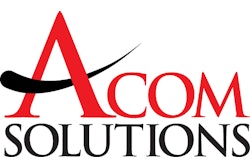Barcode technology to be used to meet FDA mandate until cost, other inhibitors resolved, according to report
Boise, ID — March 26, 2004 — The majority of hospitals are unable to integrate radio frequency identification (RFID) technologies for dispensable drug asset tracking due to cost and other concerns, according to a public report released this week by competitive intelligence provider Provizio. The study also revealed that for now they will continue to implement barcode technology for another six years.
"Our conversations with many healthcare providers reveal a common difficulty today to justify the cost outlay for the more expensive, but clearly promising, RFID technology," said Dr. Tim Rhodes, Provizio's president and healthcare practice leader. "Today, barcode technology has many advantages due to its lower cost and capability to use much of the already existing IT infrastructure within hospitals. Hospitals are already working with vendors to implement it," Dr. Rhodes said.
On February 20, 2004 the FDA recommended the adoption and common use of reliable track and trace technology to protect against counterfeit prescription drugs. It also recommended the adoption of RFID technology on all pallets, cases and packets to improve tracking accuracy in the United States. The miniature RFID technology has been identified by the U.S. Department of Defense (DoD) as superior to barcode technology.
Provizio's analysis found that when implemented, RFID technology would also be an important advancement in healthcare providers' ability to prevent adverse drug events (ADEs). It is estimated that 7,000 people die in American hospitals as the result of the 1.25 million reported ADEs annually. Bar coding technologies has been proven to significantly reduce ADE-related incidents and deaths.
"RFID technology will eventually replace barcode technology at the bedside, but it will take time for RFID vendors to create a lower cost, end-to-end solution for hospitals to easily adopt," Dr. Rhodes said.
Despite this cost barrier Dr. Rhodes said, "Early adopters will be given a clear competitive advantage as those who cannot adopt the technology will continue to incur expenses from preventable ADEs. Our study sources claim they have already reduced their medication errors by over 50 percent through the use of technology."
Boise, ID — March 26, 2004 — The majority of hospitals are unable to integrate radio frequency identification (RFID) technologies for dispensable drug asset tracking due to cost and other concerns, according to a public report released this week by competitive intelligence provider Provizio. The study also revealed that for now they will continue to implement barcode technology for another six years.
"Our conversations with many healthcare providers reveal a common difficulty today to justify the cost outlay for the more expensive, but clearly promising, RFID technology," said Dr. Tim Rhodes, Provizio's president and healthcare practice leader. "Today, barcode technology has many advantages due to its lower cost and capability to use much of the already existing IT infrastructure within hospitals. Hospitals are already working with vendors to implement it," Dr. Rhodes said.
On February 20, 2004 the FDA recommended the adoption and common use of reliable track and trace technology to protect against counterfeit prescription drugs. It also recommended the adoption of RFID technology on all pallets, cases and packets to improve tracking accuracy in the United States. The miniature RFID technology has been identified by the U.S. Department of Defense (DoD) as superior to barcode technology.
Provizio's analysis found that when implemented, RFID technology would also be an important advancement in healthcare providers' ability to prevent adverse drug events (ADEs). It is estimated that 7,000 people die in American hospitals as the result of the 1.25 million reported ADEs annually. Bar coding technologies has been proven to significantly reduce ADE-related incidents and deaths.
"RFID technology will eventually replace barcode technology at the bedside, but it will take time for RFID vendors to create a lower cost, end-to-end solution for hospitals to easily adopt," Dr. Rhodes said.
Despite this cost barrier Dr. Rhodes said, "Early adopters will be given a clear competitive advantage as those who cannot adopt the technology will continue to incur expenses from preventable ADEs. Our study sources claim they have already reduced their medication errors by over 50 percent through the use of technology."







